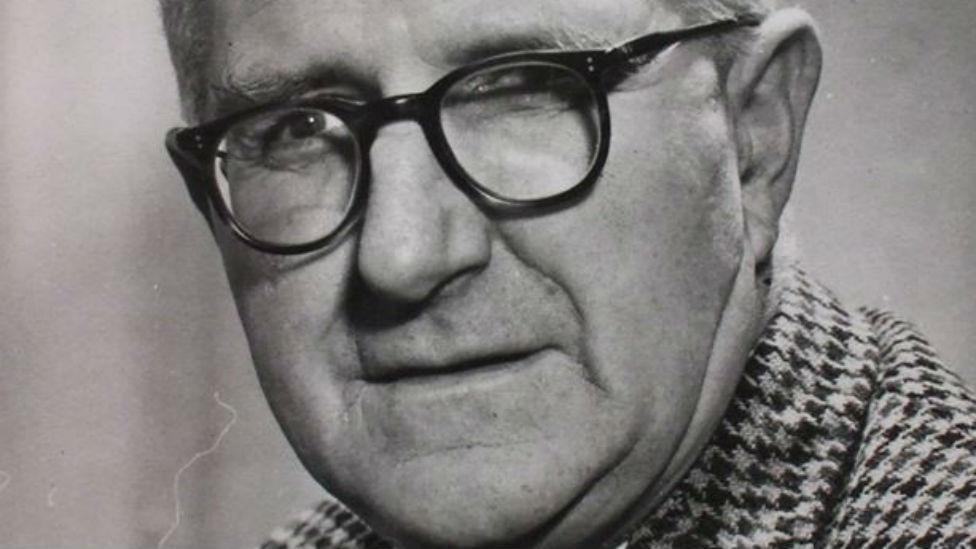Nazi occupation of Guernsey: Calls for policemen apology
- Published
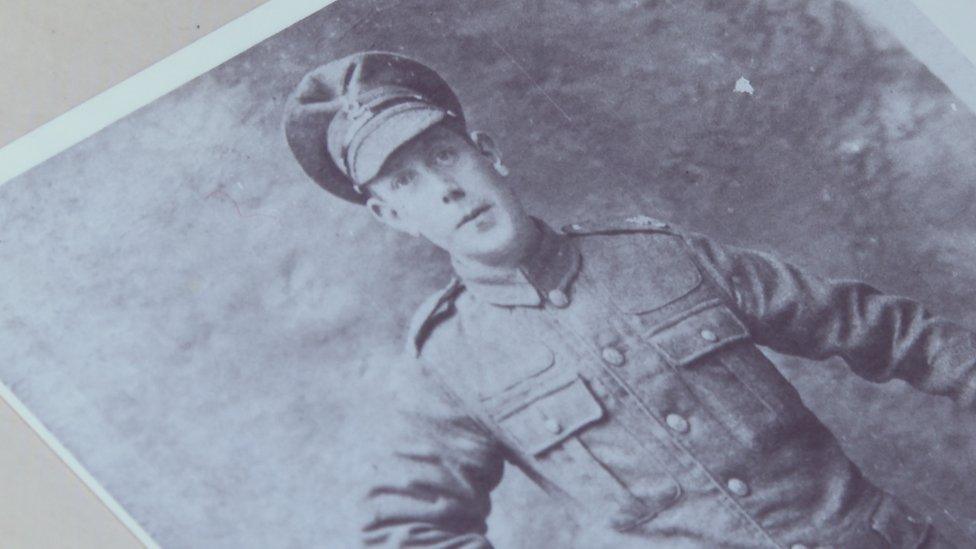
Sgt Fred Duquemin was imprisoned for three years for stealing from the German military
The daughter of a policeman jailed in Nazi-occupied Europe for stealing from the German military has called for a posthumous apology.
Sgt Fred Duquemin was convicted during Guernsey's World War Two occupation and imprisoned for three years in Belgium.
He was one of 17 officers who were convicted for "Robin Hood" thefts during food shortages in 1941-42.
Sgt Duquemin's daughter, Rose Short, said the policemen were also tortured under questioning.
She said: "I just want the States of Guernsey to admit there was a miscarriage of justice and a sincere apology for the suffering and distress caused."
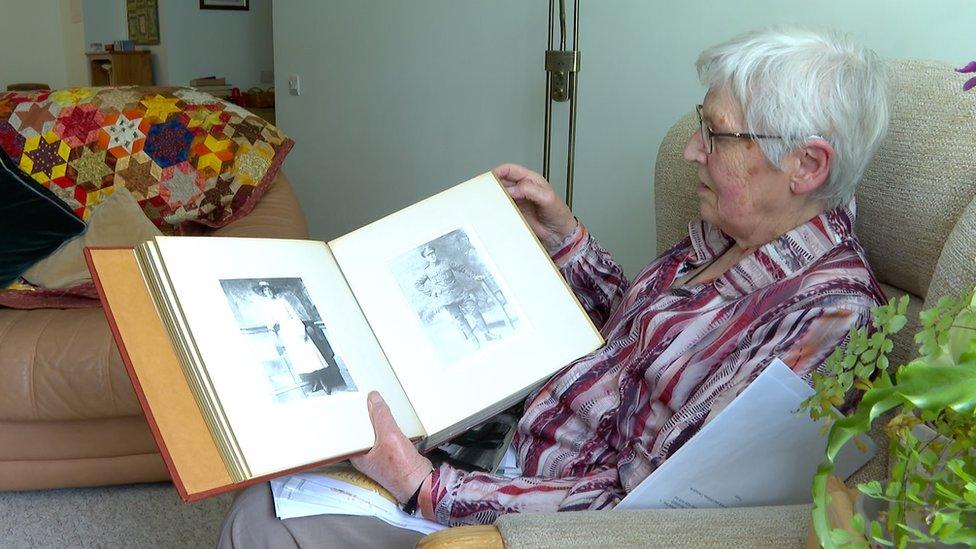
Rose Short said the States of Guernsey must recognise the "miscarriage of justice"
In 2020, a final appeal to the UK's Privy Council to overturn their convictions failed.
States of Guernsey Deputy Jonathan Le Tocq said he was "very hopeful" the States would be able to introduce a statutory pardon for the officers by the end of the year.
'Never ashamed'
Mrs Short said many other people were involved in moving the stolen goods but none of the officers involved in raiding the military supplies implicated them under questioning.
"They only confessed to things the Germans already knew, they never gave anybody's name voluntarily.
"I certainly was never ashamed of my father being in prison."
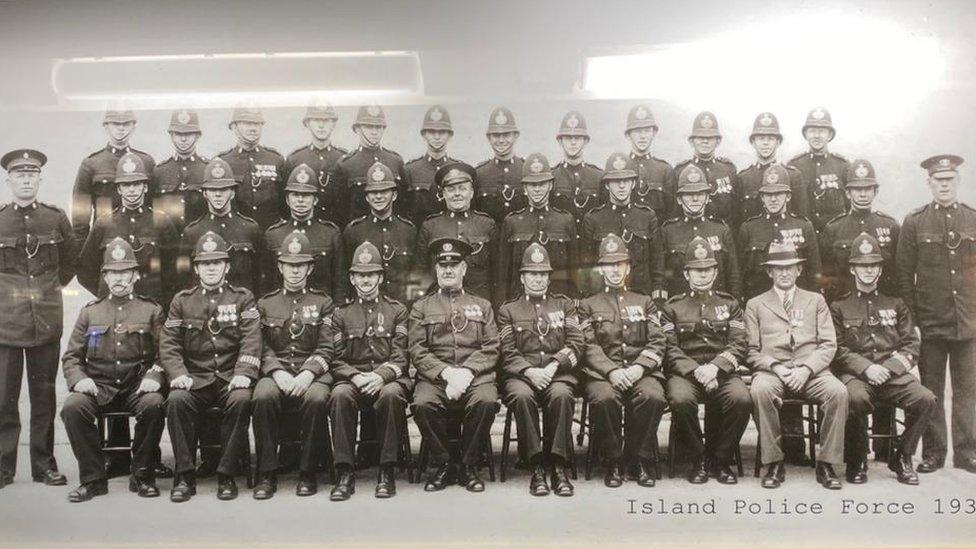
Guernsey Police officers pictured in 1936
Mrs Short said Sgt Duquemin and his fellow officers were "beaten, kicked and lied to" over several days under questioning.
"Some of them were even threatened that if they didn't sign [a confession] their wives and children would be brought in and treated the same way."
The policemen were forced to sign a document in German, which they could not read or understand, which was the evidence used at their trial.
The 17 men were tried in both a German military court and Guernsey's Royal Court - effectively still a British court - where they were sentenced to hard labour.
"They didn't know the full charges until they were read out in court, so it was hardly a fair trial," Mrs Short said.
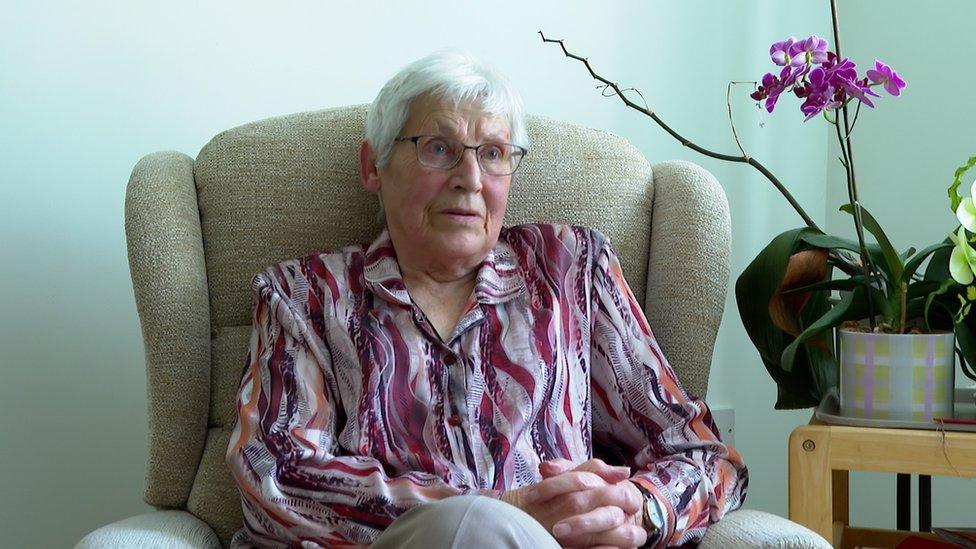
Rose Short said she was never ashamed of her father going to prison
Mr Le Tocq said plans to introduce a statutory pardon by the end of 2021 were under way, but added the situation was complicated by the fact the convictions had been upheld in courts.
He added the system would be entirely new to Guernsey, which explained the delay to introducing the process.
Mr Le Tocq said: "This is the best we can do and it is what we should be seeking to do."

Follow BBC Guernsey on Twitter, external and Facebook, external. Send your story ideas to channel.islands@bbc.co.uk, external.
Related topics
- Published29 November 2020
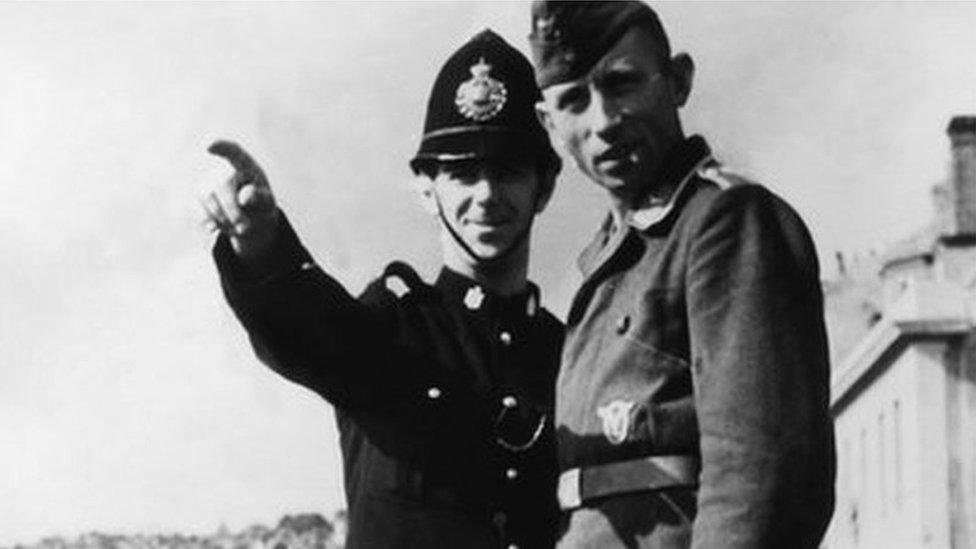
- Published2 February 2018
